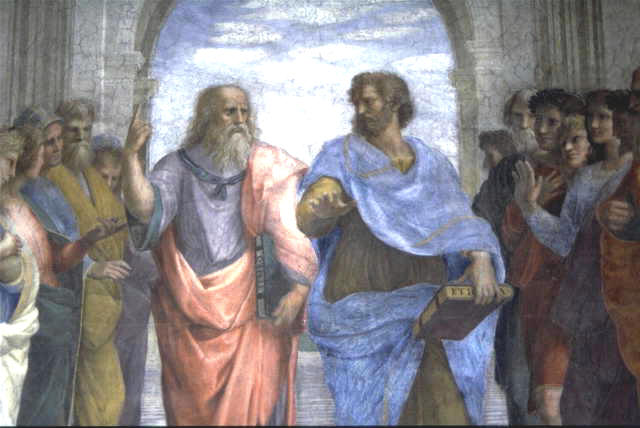 Last July, 5 I read a paper in the 13th International Conference of the Utopian Studies Society about The Dawn of All and the way Benson portrays science in this novel.
Last July, 5 I read a paper in the 13th International Conference of the Utopian Studies Society about The Dawn of All and the way Benson portrays science in this novel.
This is the abstract:
This paper examines some aspects of the utopia depicted in the novel The Dawn of All, by Robert Hugh Benson, which is a bold tale of a future world almost fully converted to Catholicism. The whole of that society is structured on this religion, or what is more accurate by an ideology based on it. The paper focuses on one of the aspects of this utopian society: the relation between science and religion, and its implications. Robert Hugh Benson explains how Psychology discovers that there is a force at work behind physical phenomena, itself not physical. Science then stops developing as a materialistic discipline and acquires a whole new horizon of possibilities. As a consequence of this, theologians and scientists, monks and doctors work together to make science advance and attain the truth in the highest level. Medicine becomes more psychological, and thus, according to this view, more spiritual. Doctors in their offices inspect the patients’ mind with modern and adequate technological means and provide psychological treatments to cure physical illnesses. These treatments consist basically on mental suggestion. The paper tries finally to draw some ideas from this utopian view of science, and above all medicine, trying to get a glimpse of different a paradigm of science: an eventual scientific horizon which might take into account other aspects than matter in its daily work, thus becoming more human and true.
 Cápsulas Filosóficas
Cápsulas Filosóficas- Amistad y Estoicismo: Lecciones de 'Friends' 14 mayo, 2024
 Bensonians (Beatrice Atherton)
Bensonians (Beatrice Atherton)- La vocación universal a la hobbitud, pór Julian Kwasniewski 31 julio, 2024
-
Entradas recientes
- Análisis de The Sentimentalists: Legado de R.H. Benson
- El obispo Barron habla sobre «Señor del Mundo» de Robert Hugh Benson
- ¡Hallazgo Emocionante! Descubrimiento del Lugar de Publicación Original de «La Conversión de Inglaterra» por Robert Hugh Benson y algunos relatos de «A Mirror of Shalott»
- Descubriendo el Futuro a Través de los Ojos de Robert Hugh Benson: Una Introducción a «Señor del Mundo»
- Recordando el legado literario de Robert Hugh Benson
Entradas
- octubre 2024 (1)
- junio 2024 (1)
- abril 2024 (4)
- diciembre 2023 (1)
- septiembre 2023 (1)
- diciembre 2020 (1)
- enero 2020 (1)
- noviembre 2019 (1)
- diciembre 2018 (1)
- mayo 2018 (1)
- enero 2018 (1)
- septiembre 2017 (1)
- marzo 2015 (1)
- febrero 2015 (3)
- enero 2015 (3)
- octubre 2014 (2)
- febrero 2014 (1)
- enero 2014 (1)
- diciembre 2013 (1)
- julio 2012 (1)
- mayo 2011 (2)
- marzo 2011 (4)
- febrero 2011 (2)
- enero 2011 (4)
Etiquetas
- American Ecclesiastical Review
- A Mirror of Shalott
- análisis literario
- análisis literario de la muerte
- catolicismo en Inglaterra
- contexto histórico The Sentimentalists
- crítica literaria The Sentimentalists
- descubrimientos literarios
- ensayos
- enseñanzas sobre la muerte
- estudio académico
- historia de la publicación
- historia religiosa
- impacto cultural The Sentimentalists
- influencia de R.H. Benson
- influencia intelectual
- interpretación de The Sentimentalists
- La Conversión de Inglaterra
- lechos de muerte
- legado literario
- literatura religiosa
- Lord of the World
- Lo sobrenatural
- muerte en la literatura
- muerte y eternidad
- Obras futuristas
- oratoria
- personajes en The Sentimentalists
- Psicología
- publicaciones eclesiásticas
- R.H. Benson obras destacadas
- reencarnación
- reseñas The Sentimentalists
- resumen The Sentimentalists
- ritos funerarios
- Robert Hugh Benson
- significados ocultos The Sentimentalists
- simbolismo en The Sentimentalists
- teología inglesa
- The Dawn of All
- The Light Invisible
- The Lord of the World
- traducción
- visión cristiana de la muerte
- visión judeocristiana
Sitios de interés
Categorías

 Cápsulas filosóficas: grandes ideas en pequeño formato
Cápsulas filosóficas: grandes ideas en pequeño formato